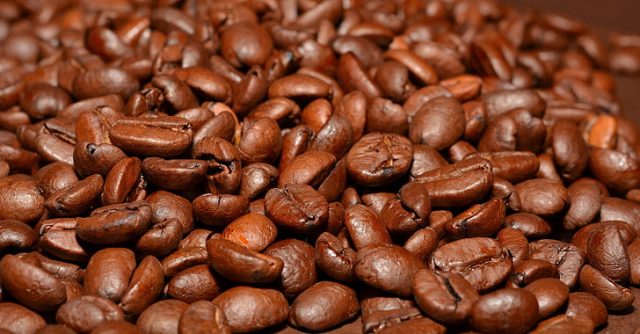
Coffee, one of the world’s most popular and beloved drinks, could disappear. Or, at best, it could become a luxury. The main enemy of coffee crops is climate change, but many consumers will give up altogether or be forced to eventually turn to coffee substitutes because of rising prices.
Europeans, who are the biggest consumers of coffee, will also be hardest hit. The new EU law designed to stop deforestation – although ultimately intended to combat climate change and therefore save coffee crops – is giving coffee producers a big headache. Producers say the new law will be difficult to implement. Major investors have already announced recently that they are considering selling their shares in producers of goods that will be subject to the future law, which would lead to a decline in the industry. Several chocolate and coffee producers, including the Italian group Lavazza, have recently raised concerns about the practicalities of a new EU law designed to stop deforestation, according to Reuters, quoted by Agerpres.
The reactions come despite voluntary commitments by the same companies, and the cocoa and coffee industry as a whole, to improve their supply chains through third-party audit procedures. Under EU law, importers of coffee – like importers of cocoa, beef, soya, rubber and palm oil – have to prove that their supply chains do not contribute to deforestation. If they fail to do so, the companies in question would face penalties involving fines equivalent to 4% of their turnover in the EU bloc.
“From a practical point of view, this law will be difficult to implement because the coffee supply chain is very complex and traceability is very difficult. We are talking to the European authorities, through our association, trying to find a way,” said Lavazza Group Chairman Giuseppe Lavazza.
According to him, European rules will be difficult to implement without more guidance, given the large number of intermediaries involved in the coffee sector. On the other hand, according to the source quoted, several major investors said last month that concerns about their exposure to the issues could lead them to decide to divest their stakes in consumer goods producers with supply chains at risk of being sanctioned by the new European law aimed at stopping deforestation.
Deforestation is the second biggest cause of climate change after fossil fuel burning
According to European statistics, the area of forest cleared to make way for more financially productive agricultural crops has now exceeded the area of the European Union – more than 400 million square kilometres. Laura Bonciu, a representative of Greenpeace Romania, explained to ProTV why these legislative measures are important to stop deforestation. Not only will they contribute to significant climate change, but they also endanger the existence of communities.
“We are talking about countries whose main production is palm, coffee, avocados, and which somehow have started to be taken over by a mafia or some corporations, which have a lot of say in local politics. It is about greed. The more land they have on which to grow these monocultures, the more products they manage to put out and sell, and the local communities unfortunately get in the way,” says Laura Bonciu.
The price of engross coffee reached its highest level in 12 years in the middle of this year. And after a nearly 30% increase over last year, further rises of up to 20% are expected by the end of the year. Traders are claiming higher costs for transporting coffee because of rising fuel prices following the start of the war in Ukraine. They also expect a poorer harvest in Brazil, the world’s largest producer, as fertilisers imported from the Russian Federation are harder to come by. The price increases come at a time when coffee consumption has increased in recent years. In the European Union alone, coffee imports have increased in recent years and exceeded €7.5 billion in 2020, according to Eurostat. The largest quantities are brought in from Brazil and Vietnam. Double-digit inflation, which has driven up prices, has forced some consumers to turn to cheaper varieties of coffee. Although many coffee lovers prefer the higher-quality Arabica variety, Robusta is typically cheaper because the coffee tree is hardier and needs less care, so it is easier to produce in large quantities. The robusta variety is commonly used in instant coffee, espresso and ground coffee sold in supermarkets, products that have seen high demand as price-conscious consumers look for affordable alternatives, reveals an analysis by economica.net.

For consumers in Germany, Europe’s largest coffee market, this is having a significant effect on marketing prices, with instant coffee varieties almost 20% more expensive than a year ago. The chances that the global problems with the supply of robusta coffee will ease in the near future are pretty slim.
Analysts estimate that Vietnam, the world’s largest robusta coffee producer, has harvested its smallest crop in four years as farmers have focused on more profitable crops such as avocado and durian to cope with the explosion in fertiliser prices after the Russian invasion of Ukraine. Crops in Brazil, the world’s second largest robusta coffee producer, have suffered from the drought and there are concerns that Indonesia’s production could also suffer from heavy rainfall.
In 20 to 30 years the coffee varieties we use today could be extinct
According to environmental experts quoted by inc.com, there is a possibility that in 20 to 30 years the varieties of coffee we drink today will disappear and be replaced by coffee substitutes or hybrids that only resemble the beverage we enjoy today. Both arabica and robusta coffees are affected not only by global warming, but also by the instability of weather caused by climate warming. Temperature change creates stress on the environment and contributes to the spread of parasites, pests and plant diseases.
The European Union reached an agreement on the 6th of December 2022 to ensure “deforestation-free supply chains” for the EU, requiring companies importing into the EU to ensure that products are not grown on land that has been deforested after the 31st of December 2020 and that they comply with all laws in the country of origin. The scope includes palm oil, cattle, soya, coffee, cocoa, wood and rubber, as well as derived products such as beef, furniture and chocolate.
Illegal production has spurred massive deforestation in countries such as Brazil, Indonesia, Malaysia, Nigeria, Democratic Republic of Congo, Ethiopia, Mexico and Guatemala. Environmental lobby group Greenpeace called the draft law, agreed between the European Parliament and EU member states, “a major breakthrough”.
“This regulation is the first in the world to address global deforestation and will significantly reduce the EU’s footprint on nature,” said WWF.
Both groups called on the EU to go further by expanding the scope of the law to include savannah such as Brazil’s Cerrado, which is also threatened by encroaching ranchers and farmers. Greenpeace said financial institutions that provide services to importing companies would not initially fall under the new law, but would be reviewed two years later. High-risk exporting countries would have 9% of products sent to the EU checked, while lower-risk countries would have smaller proportions checked. Companies that break the law could be fined up to four percent of their annual turnover in the EU. The law will only start to apply next year. Europe ranks first in coffee consumption, with more than a third of the planet’s total.



 Subscribe
Subscribe